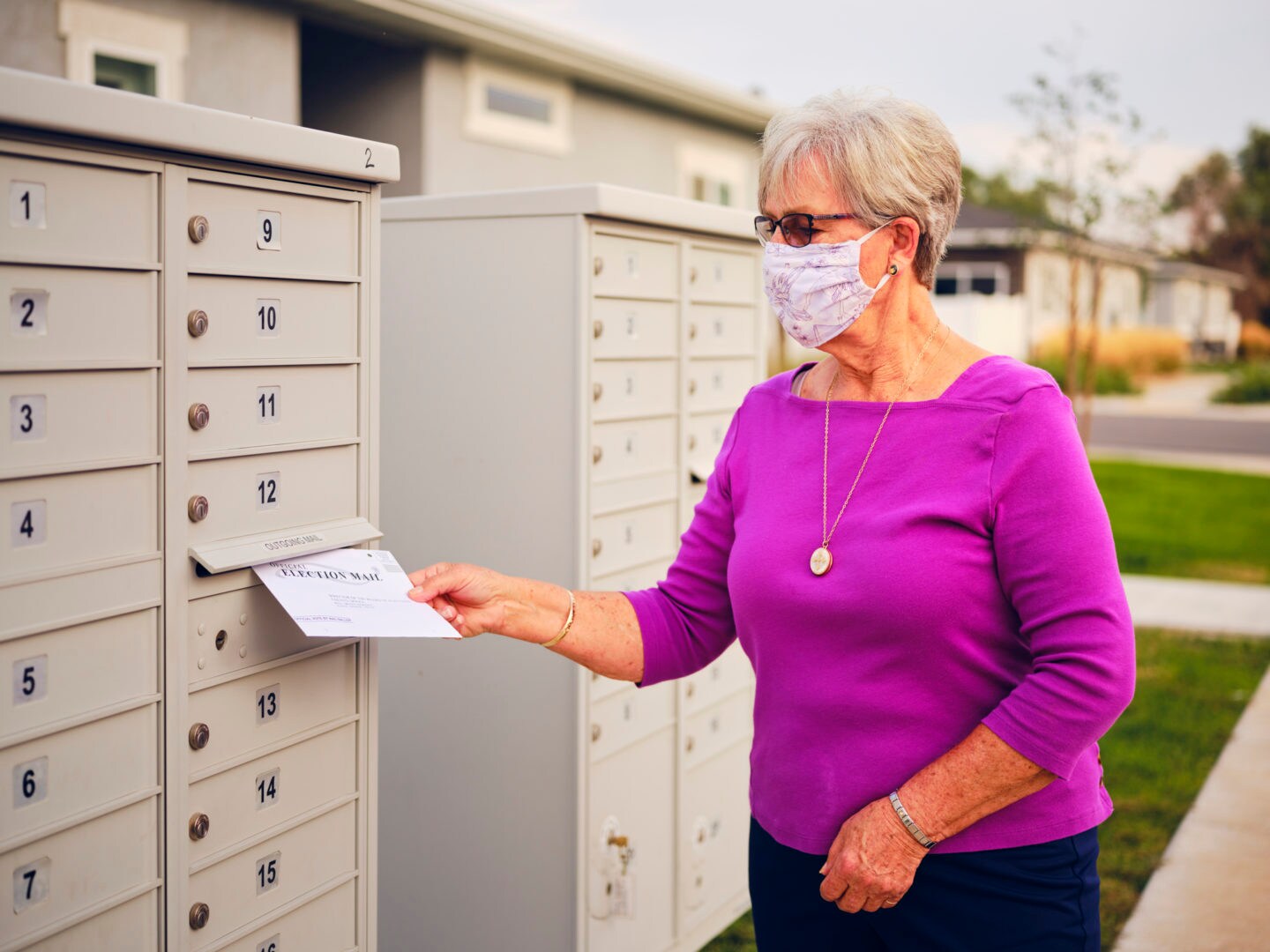The general election is swiftly approaching, but the COVID-19 pandemic continues to rage from coast to coast, raising concerns that fears of transmission and confusion around mail-in voting might keep voters at home. But early indicators suggest that older Americans, who have been flagged as especially vulnerable to the novel coronavirus since the start of the pandemic, won’t be deterred from casting their ballots. In fact, seniors, especially those voting in swing states, are looking to have a major impact on election results.
Here’s what we know so far.
Seniors are a voting bloc to be reckoned with
Jeff Brauer, political science professor at Keystone College in Factoryville, Pennsylvania, is so certain that older Americans will show up this election year that he tells The Detroit News, “Senior citizens will decide the next president of the United States.”
His reasoning: Older Americans have always been a powerful voting bloc. Recent election stats only serve to illustrate that seniors show up. In 2016, nearly half (45%) of the electorate was 50 or older, according to AARP. Thirty percent were 50-64-year-olds, while voters 65 and older made up 15%. And in critical swing states — Pennsylvania, Wisconsin, Michigan, Florida and North Carolina — seniors voted in even higher percentages than the national average, Brauer says.
Two years later, in the 2018 midterm elections, two-thirds of seniors voted compared to 53% of the overall voting-age population.
At the same time, the senior population is ballooning with Baby Boomers entering this demographic, so they’ll have even more sway, says Brauer. In fact, voters over age 65 are projected to make up nearly a quarter of the electorate in 2020, the highest such share since 1970, according to the Pew Research Center.
The Florida factor
Florida, which accounts for 29 electoral votes, is one of the most notorious swing states, given that the outcome of the incredibly close 2000 election between Al Gore and George W. Bush hinged on the Sunshine State. It’s also the state with the second highest population of Americans 65 or older. That said, both presidential candidates are aiming to win over Florida seniors, who could truly fuel or destroy their ability to hit 270 electoral votes.
Seniors’ top issues
Key issues are driving seniors’ motivation to vote, as well as who they’ll stand with this November.
The pandemic: New battleground state polls from AARP show seniors are overwhelmingly concerned about contracting COVID-19, and this is sure to be reflected in their votes. More than 80% of voters in six battleground states (Arizona, Florida, Michigan, North Carolina, Pennsylvania and Wisconsin, Arizona, Florida, Michigan, North Carolina, Pennsylvania and Wisconsin) said they would be more likely to vote for a candidate who increased protections for nursing home residents during the pandemic.
In another survey conducted by MorningConsult in April, by a nearly 6-to-1 margin, people 65 years old and older say it’s more important for the government to address the spread of the novel coronavirus than it is to focus on the economy.
Social Security and Medicare: AARP notes that by overwhelming margins, older voters in 11 states (Arizona, Colorado, Florida, Georgia, Iowa, Maine, Michigan, Montana, North Carolina, Pennsylvania, Wisconsin) say they are more likely to vote for candidates who promise to protect Social Security benefits and strengthen Medicare.
Lowering prescription drug prices: Nearly 80% of older Americans believe the cost of prescription drugs is unreasonable, according to 2019 research by the Kaiser Family Foundation, so it’s no wonder it’s a priority for senior voters this year, according to AARP.
The bottom line
Although they may be concerned about contracting COVID-19, older Americans appear to be razor-focused on making their voices this fall. John Hishta, AARP senior vice president for campaigns, explains alongside results of the organization’s recent polls, “Older voters are taking a look at the voting process and making personal decisions on how they want to vote — either absentee through the mail or by going to the polls and voting. The interest in this election is incredibly high, and the coronavirus is not going to stop them.”


